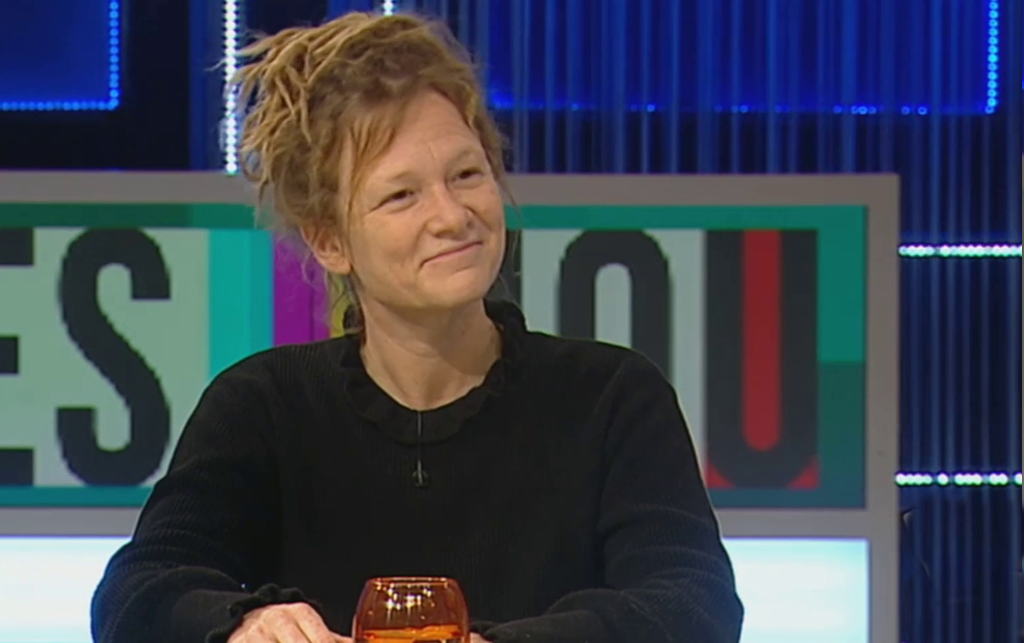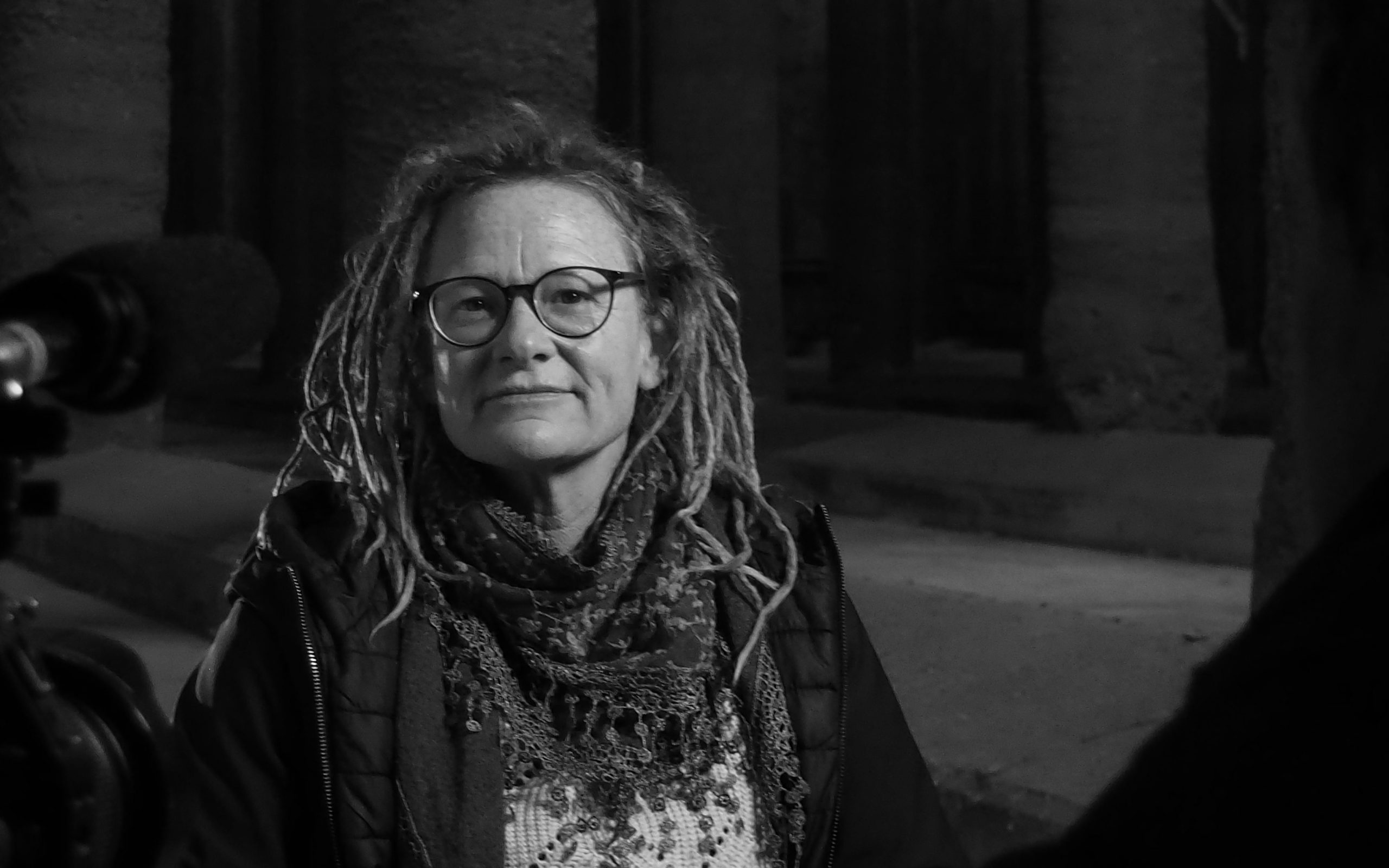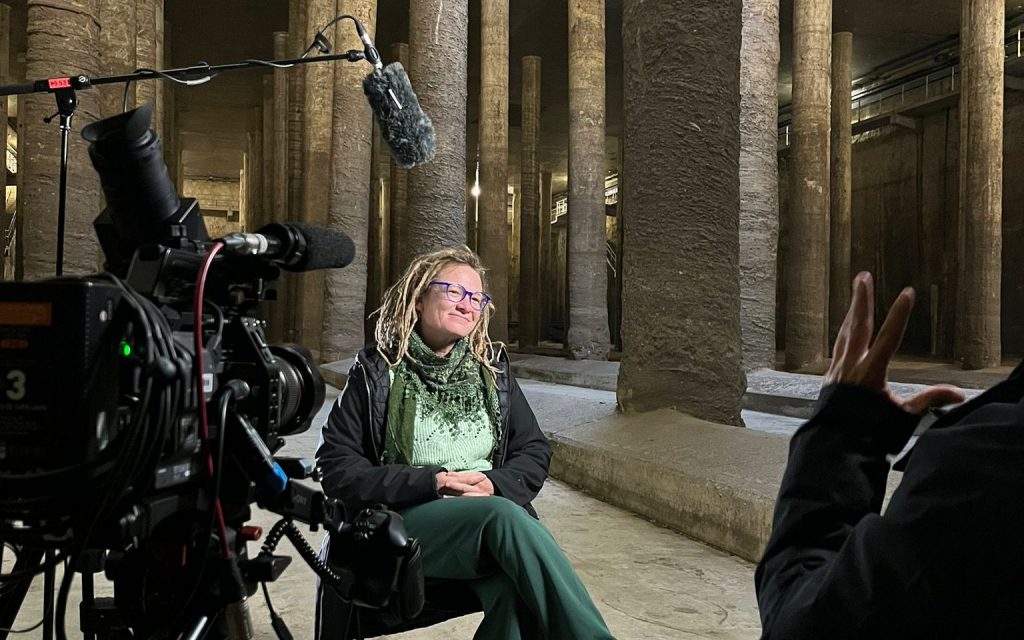The contrast between a green garden under the lead gray sky of the Netherlands and the bright colors of southern Italy marks a before and after in the life of CREAF researcher Annelies Broekman. Belgium is the setting of her childhood until the age of 10; Italy’s Apulia is the first contact with the Mediterranean and a new habitat dominated by light. “I grew up in the family garden, palying with hedgehogs, blackbirds and catching caterpillars to see if they would turn into butterflies. I lived next to a deciduous forest, with an agro-ecology typical of northern Europe that I always liked very much”, she recalls with her catchy positivism.
"I grew up in the family garden, playing with hedgehogs, blackbirds and caterpillars. Ethology was my world: I dreamed of being able to communicate with animals in order to understand and care for them"
In southern Italy she found reptiles, sea urchins, algae and fish that she observed during the long southern summers. At that time she read Conrad Lawrence and Gerald Durrell: “ethology was my world: I dreamed of being able to communicate with animals to understand and care for them”. It was the years when she built terrariums in her room with small animals from the recovery center, which sometimes escaped, as happened with some snakes, with great patience from her mother.
Instead of ethology, she opted for agricultural engineering at the University of Bologna (Italy), which she finished with a final paper on the immunology of fish. Some time later, her doctorate was to dive into a new but complementary aspect: studying the relationship between new water pricing for agriculture and compliance with the environmental objectives of European policies. Her conclusion was that the dynamics of water use in agriculture are complex and require an integrated vision, in order to meet the expectations of savings and reduction of the environmental impacts of the sector.

Her interest in water management policies led her to study them in depth at the University of Zaragoza (Spain) with physicist and researcher Pedro Arrojo, United Nations special rapporteur on human rights in drinking water and sanitation, and with the Foundation for a New Water Culture, a network of academics and social movements in the Iberian Peninsula. Today she recalls this collaboration from the “immense generosity and spirit of sharing knowledge about water conflicts, in an integral sense and with a huge body of cutting-edge studies“. And she speaks of an interdisciplinary training with great richness.
A social vision of water
The study and action in the field are the preamble to a long specialized dedication to water management policies, which goes hand in hand with activism from science. “I began to understand the role of science as I learned about the new water culture”.
"To study water it is necessary to integrate a social political vision"
Her interest in the local struggles of social movements in defense of rivers leads her to collaborate with various NGOs, to which she provides technical and scientific support with a broad vision. It is the time when working on different cases shows that water management builds similar patterns all over the world. “The world’s water problems are extremely similar: an advantage for sharing solutions and transformative projects with social movements”, Broekman reflects. “Water is a common good, the basis of all life and a natural monopoly: we cannot choose not to have water. That is why it is essential to avoid hoarding resources and to ensure a governance model that considers watersheds hydro-social systems”.

“Water is a common good, the basis of all life and a natural monopoly: we cannot choose not to have water. That is why it is essential to avoid hoarding resources and to ensure a governance model that considers watersheds hydro-social systems”
ANNELIES BROEKMAN, CREAF researcher.
Broekman’s working methodology and her approach to water management policies are forged through field work. In Catalonia, for example, thanks to the participatory processes linked to the first planning cycle of the Water Framework Directive (2009-2015), she collaborated with the Network for a New Water Culture, chaired by ecologist Narcís Prat, and with the Catalan Water Agency to ensure an exhaustive monitoring of the debate in the 17 internal basins. “Science must serve to innovate in the way we think, in diverse water management practices and also in our narrative”, she says. “Water cannot be studied without integrating a social political vision. It must be looked at with a joint vision, because it is the interconnection between all living and biophysical systems”.
Adaptation is either local or it is not
Almost by chance and without intending to, she arrived at CREAF to meet the team that initiated the European project BeWater. The understanding was so fluid that she has been working at the center for 10 years. “BeWater was a beautiful adventure: I got to know the Tordera stream, where I still work,” she explains. “It made it possible to develop measures that are still in place, such as the governance space and the integrated strategy for the delta and the lower Tordera”. Today her approach is included in the actions to address the climate emergency of the Regional Council of El Maresme, in Catalonia.
"The world's water problems are extremely similar: an advantage for sharing solutions and transformative projects with social movements"
With the conviction that “adaptation to global change is local or it is not”, Annelies Broekman seeks active and stable collaboration with local administrations: “It has been a satisfaction” she says, “the Working Table for Adaptation to Climate Change (METACC) has had a scientific committee composed of 40 leading researchers from Catalonia to improve the mitigation and adaptation strategy of the Maresme region”. The results were presented to the 30 town councils that make up the strategy in order to prioritize actions and learn about the needs of each municipality, the basis for approving the final document unanimously.

Innovating in governance to adapt to climate change requires including the voices of all stakeholders: people, economic sectors and entities. “One of the challenges now is to coordinate institutions and overcome the fragmentation of competences to make the proposed measures a reality and reduce the vulnerability of that territory“.
Her current challenge is called Mission for Natural Heritage, it is part of the new Interreg Euro-MED program and aims to concretize scientific knowledge based on experience aimed at decision-makers. The focus is “to create a community of practices to transfer knowledge that will help to restore, protect and enhance the value of the natural heritage of the Mediterranean”.
Learn and transform
There is a mixture of languages in her way of speaking, a multiplicity that only highlights her polyglot, accessible, conversational and absolutely easy-going and expansive way of doing. “Languages are alive. I deeply admire those who learn them from a book, I am incapable. I learn them because I need them to express myself”.
"My responsibility is to try to facilitate as much as possible positive dynamics and constructive criticism, real transformations and to learn from experience to formulate new questions"
Passion and urgency mark Annelies Broekman’s rhythm, both in expressing herself and in addressing issues. An attitude always filtered through enormous consideration, both for people and the environment. “My motivation comes from the privilege of learning and being part of a global network of people fighting to defend life”, she explains with a permanent smile.
The reflection goes further and underpins her dedication to research, to improve governance to adapt the Mediterranean region to global change: “My responsibility is to try to facilitate as much as possible positive dynamics and constructive criticism, real transformations and to learn from experience to formulate new questions”. This approach involves constant exchange, deliberating on identified challenges, applying methodologies to co-create solutions and promoting a culture of mutual learning to address the complexity of global change.







